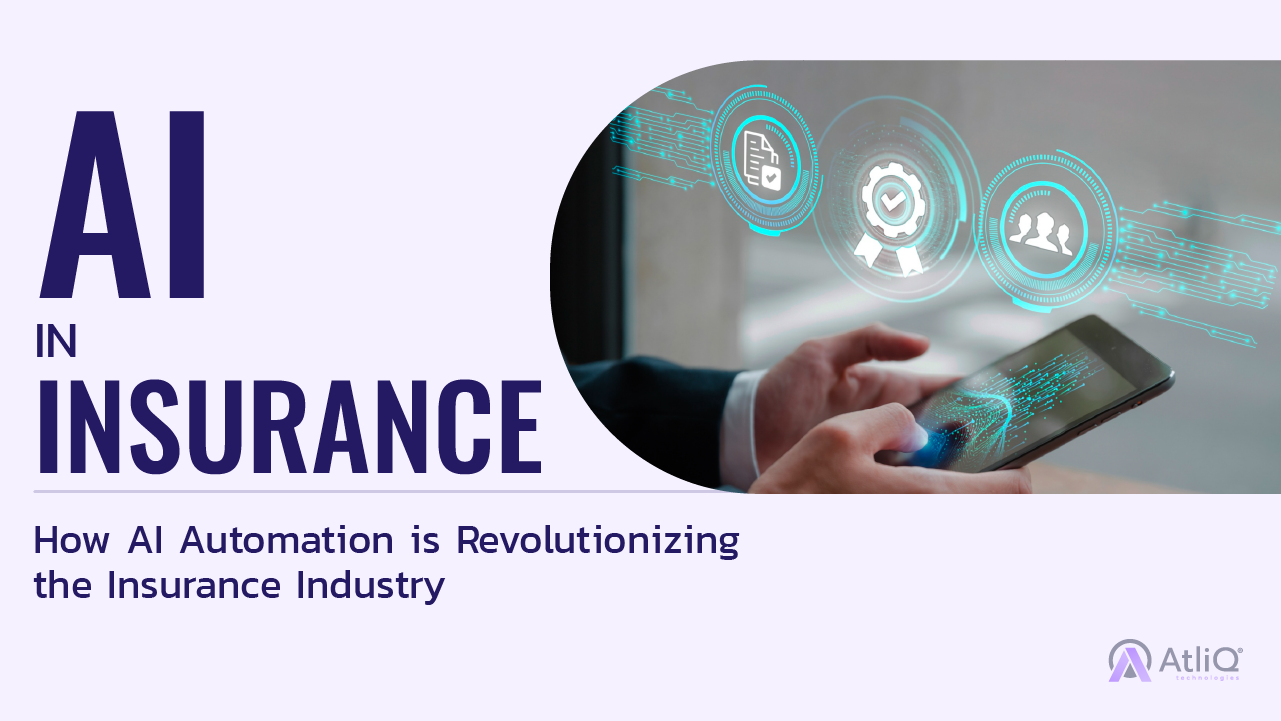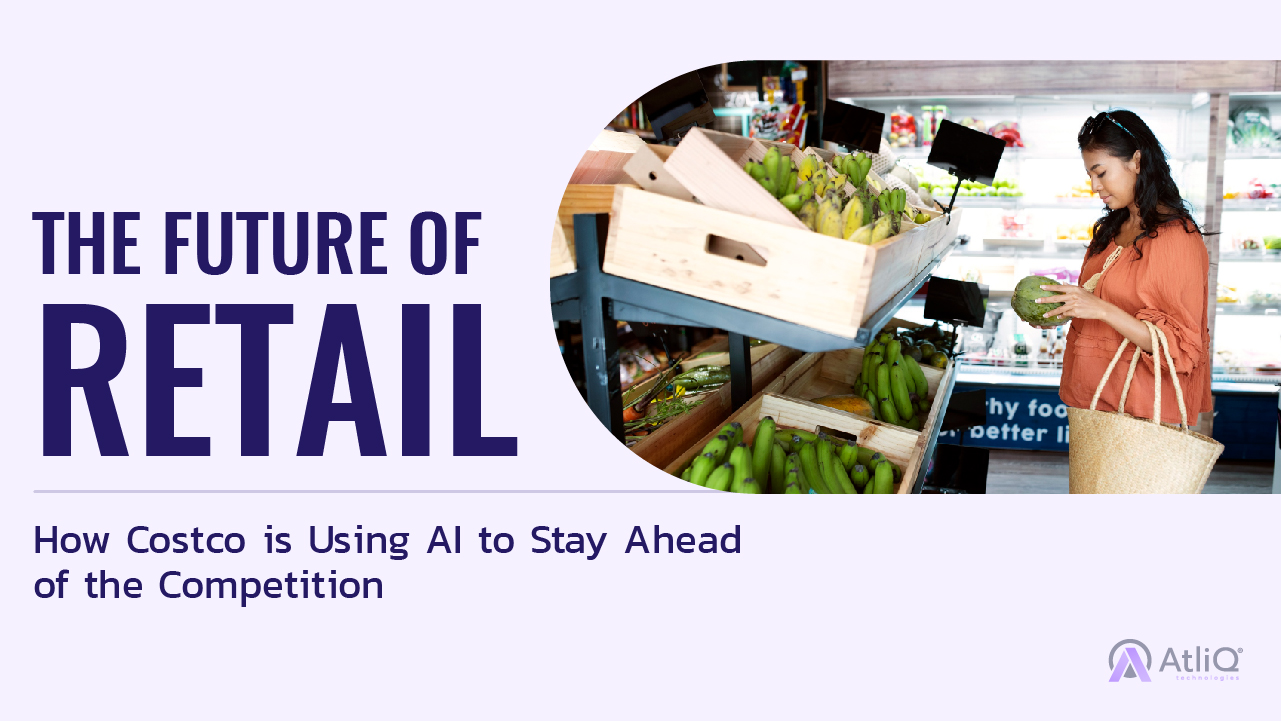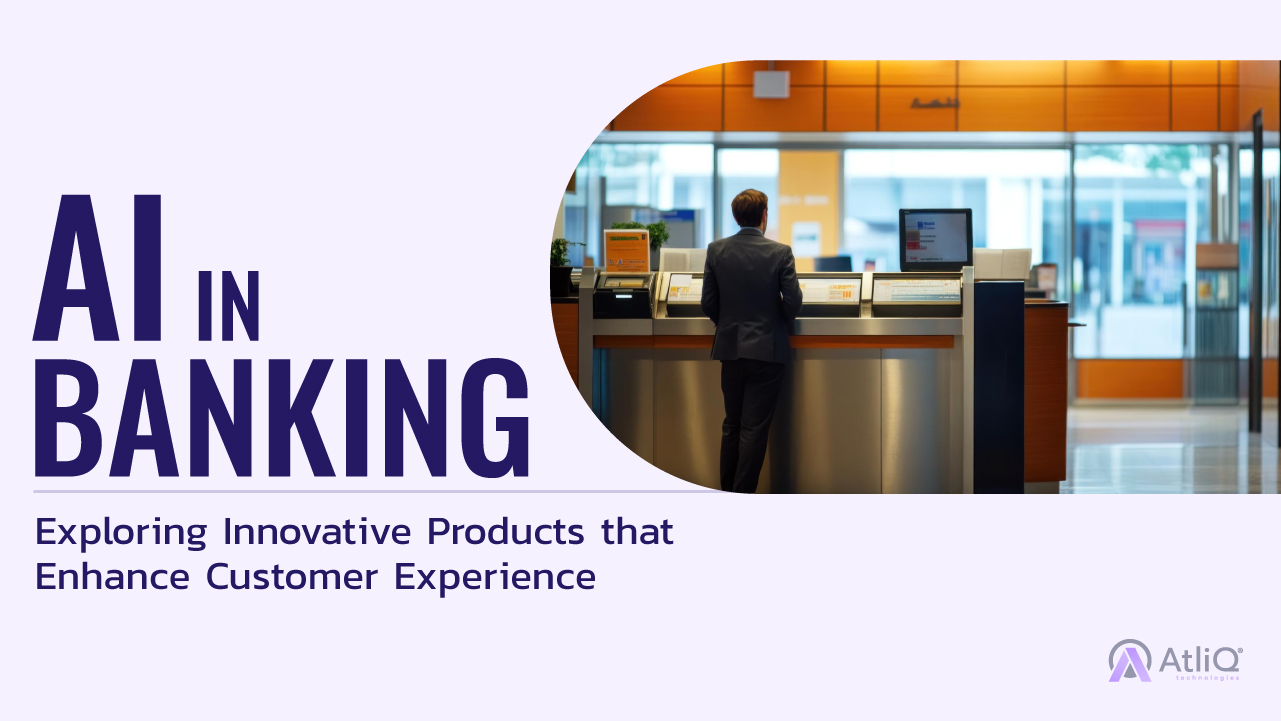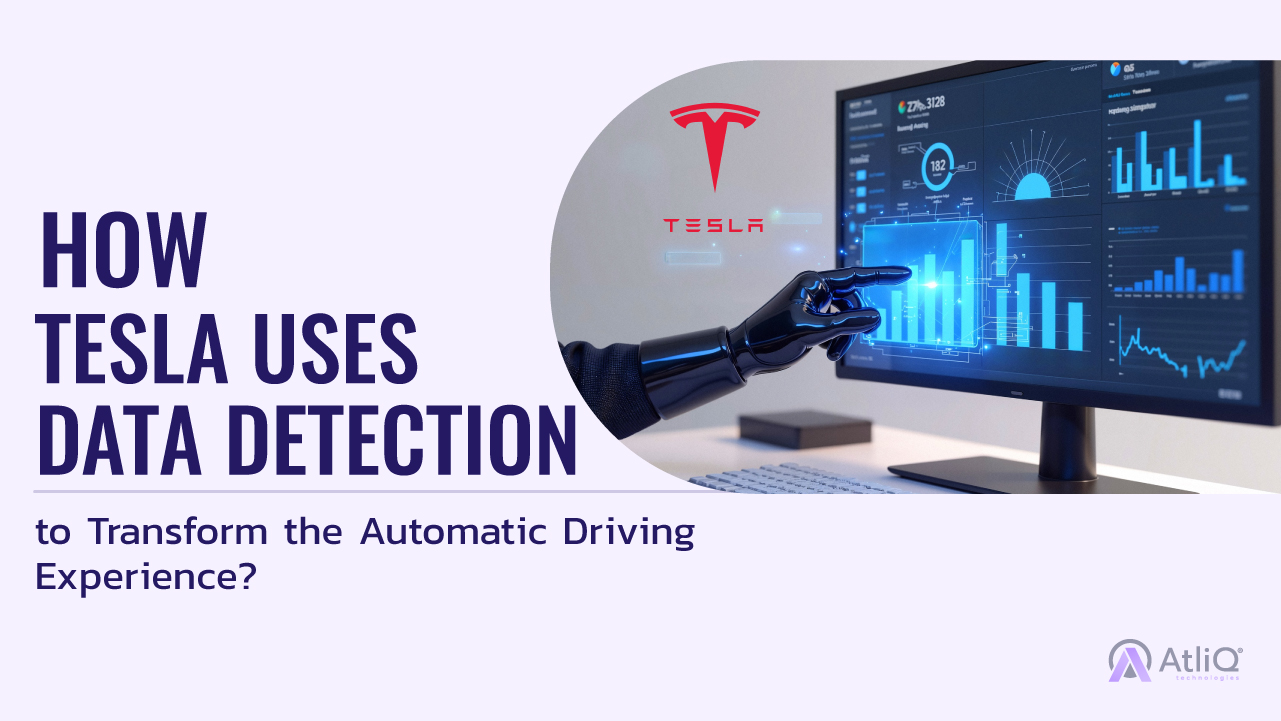
The traditional insurance industry, built on meticulous paperwork and manual processes, is undergoing a significant transformation. In a world driven by innovation, the need to leverage cutting-edge technology is paramount. This is where AI (Artificial Intelligence) enters the scene, poised to disrupt and propel the insurance sector towards a future of growth, efficiency, and exceptional customer service.
AI for insurance companies is no longer a futuristic concept; it’s a tangible reality transforming how businesses operate. From AI in underwriting to AI in claims processing, this powerful technology is streamlining operations, enhancing decision-making, and fundamentally reshaping the customer experience.
This blog delves into the exciting intersection of AI in the insurance industry, exploring the numerous benefits it offers and how companies can harness its potential to unlock a new era of growth and industry leadership.
The Rise of AI in Insurance: Revolutionizing the Way We Insure
AI refers to the development of intelligent systems capable of mimicking human cognitive functions like learning and problem-solving. In the realm of insurance, AI in insurance leverages vast troves of data to automate tasks, enhance decision-making, and personalize the customer journey.
AI’s Impact Across Key Insurance Functions:
Underwriting: Traditionally, underwriters relied on experience and historical data to assess risk and determine premiums. AI in underwriting automates this process by analyzing a broader spectrum of data points, including:
- Public Records: Driving violations, credit history, and property details.
- External Sources: Weather patterns, crime statistics, and historical claims data from other insurers.
- Connected Devices: Real-time insights into driving behavior and potential risks gleaned from smart homes and vehicles.
Claims Processing: The traditional claims process can be sluggish and cumbersome. AI in claims processing streamlines this experience by:
- Automating Claim Intake: AI-powered chatbots can gather basic information from policyholders, reducing manual data entry and expediting the claims process.
- Validating Claims: AI can analyze submitted documents and medical records to verify the legitimacy of claims and flag potential inconsistencies.
- Fast-Tracking Settlements: By automating claim verification and minimizing manual intervention, AI facilitates faster claim settlements, leading to improved customer satisfaction.
Customer Service: In today’s digital landscape, customers expect prompt and efficient service. AI in customer service offers significant advantages through:
- 24/7 Chatbots & Virtual Assistants: AI-powered chatbots can address basic customer inquiries, provide policy information, and even initiate the claims filing process, ensuring round-the-clock support.
- Personalized Interactions: AI can analyze customer data and past interactions to anticipate needs and provide personalized recommendations for policy options and risk mitigation strategies.
Benefits of Leveraging AI Automation in Insurance
The integration of AI and automation is rapidly transforming the insurance landscape. AI for insurance companies is no longer a peripheral consideration; it’s a strategic imperative that unlocks many benefits, propelling businesses toward a future of increased efficiency, enhanced customer satisfaction, and a competitive edge.
Unlocking Efficiency Through Automation:
- Reduced Manual Tasks: Repetitive tasks like data entry, document processing, and initial claim assessments can be automated using AI, freeing up human capital to focus on complex issues and value-added activities.
- Faster Processing Times: AI streamlines workflows, significantly reducing processing times for underwriting, claims filing, and policy renewals. This translates to quicker turnaround times and improved customer satisfaction.
- Optimized Operational Costs: Automation driven by AI minimizes manual intervention, leading to reduced administrative expenses and improved operational efficiency. This allows insurers to invest resources in strategic areas like product development and customer service.
Enhancing the Customer Experience:
- Personalized Communication: AI can analyze customer data and past interactions to anticipate needs and provide tailored recommendations. This fosters stronger customer relationships and a more personalized insurance experience.
- Faster Claims Resolution: AI-powered automation expedites the claims process by verifying information, identifying potential fraud, and facilitating faster claim settlements. This reduces customer frustration and improves overall satisfaction.
- 24/7 Accessibility: AI-powered chatbots and virtual assistants can address basic customer inquiries, answer questions about policies, and even initiate the claims filing process, offering round-the-clock support and improved accessibility.
Data-Driven Decision Making for Smarter Business:
- Improved Risk Assessment: AI algorithms can analyze vast amounts of data, including non-traditional sources, to create a more comprehensive picture of an individual’s risk profile. This allows for fairer and more accurate risk assessment, leading to competitive pricing models.
- Enhanced Fraud Detection: AI can identify patterns and anomalies in claims data that might be indicative of fraudulent activity. This proactive approach strengthens the integrity of the system and minimizes financial losses.
- Data-Driven Product Development: AI can analyze customer data and market trends to identify gaps in coverage and develop innovative insurance products that cater to specific customer needs.
Gaining a Competitive Advantage in the Marketplace:
- Offering Innovative Solutions: By embracing AI, insurers can differentiate themselves by offering cutting-edge solutions and personalized services that cater to customers’ evolving needs in a dynamic market.
- Tech-Driven Approach: Integrating AI showcases a commitment to innovation and positions companies as leaders at the forefront of the insurance technology revolution. This fosters trust and attracts tech-savvy customers seeking a modern insurance experience.
In conclusion, leveraging AI automation presents a wealth of benefits for insurance companies. From increased efficiency and data-driven decision-making to enhanced customer experiences and a competitive edge, AI is reshaping the industry and paving the way for a future of sustainability and growth.
Challenges and Considerations of AI in Insurance
While Artificial Intelligence offers a plethora of advantages for the insurance industry, its implementation necessitates careful consideration of potential challenges. Addressing these challenges proactively is vital to ensuring ethical, responsible, and successful AI integration.
Safeguarding Data Privacy and Security:
- Data Sensitivity: The insurance industry deals with a vast amount of sensitive customer information, including financial data, medical records, and personal details. AI in insurance companies must prioritize robust data security measures to prevent breaches and maintain customer trust.
- Regulatory Compliance: Strict regulations govern data privacy and security. Insurers must ensure compliance with these regulations, such as GDPR (General Data Protection Regulation) and HIPAA (Health Insurance Portability and Accountability Act), throughout the data collection, storage, and analysis processes.
Ensuring Transparency and Explainability:
- The “Black Box” Dilemma: AI algorithms can be complex, making it difficult to understand the rationale behind certain decisions. This lack of transparency can raise concerns about fairness and bias.
- Building Trustworthy Systems: It’s crucial to develop AI systems that are transparent and explainable. This involves implementing mechanisms that provide clear explanations for automated decisions, allowing for human oversight and intervention when necessary.
Addressing Workforce Considerations:
- Potential Job Displacement: Automation powered by AI may lead to job losses in certain areas, particularly roles involving repetitive tasks.
- Reskilling & Upskilling the Workforce: To mitigate the impact of job displacement, insurance companies should invest in reskilling and upskilling initiatives. This equips employees with the necessary skills to adapt to the changing work environment and contribute to the effective implementation and management of AI systems.
By acknowledging these challenges and taking proactive measures to address them, insurance companies can harness the immense potential of AI while adhering to ethical principles and ensuring a smooth transition towards a future powered by intelligent automation.
The Future of AI in Insurance
The integration of AI is revolutionizing the insurance industry, and its impact is poised to expand even further in the years to come. Here’s a glimpse into the exciting possibilities that AI holds for the future of insurance:
Hyper-Personalized Insurance Products: Imagine a world where insurance coverage seamlessly adapts to individual needs and risk profiles. AI in insurance will enable this vision by leveraging vast amounts of data to create truly hyper-personalized insurance products. Factors like driving behavior (via telematics data), health habits (through wearable technology), and even home security measures (from smart home devices) can be considered to design customized policies with dynamic premiums that reflect an individual’s unique risk profile.
Real-Time Risk Assessment: The traditional approach to risk assessment relies on historical data and static factors. AI paves the way for a more real-time assessment process. Data from connected devices, such as smart cars and smart homes, can provide insurers with a constant stream of real-time information about driving behavior, property conditions, and potential hazards. This real-time data can be used to:
- Adjust premiums dynamically based on driving patterns or home safety measures.
- Offer real-time discounts for safe driving or proactive risk mitigation strategies.
Preventative Claims Management: Proactive identification and mitigation of potential claims represent a significant advancement. AI can analyze vast datasets to identify patterns and predict potential risks. For instance, AI can analyze weather data and historical claims information to predict the likelihood of flooding in a particular area. This allows insurers to:
- Proactively reach out to policyholders in high-risk areas and advise them on preventative measures.
- Offer temporary coverage extensions or adjustments in case of unforeseen circumstances.
The Road Ahead
The future of insurance is undoubtedly shaped by AI. By embracing AI and its potential, insurers can unlock a new era of:
- Enhanced Customer Experience: Personalized coverage, real-time support, and proactive risk management.
- Data-Driven Decision-Making: Accurate risk assessment, efficient resource allocation, and innovative product development.
- Improved Industry Efficiency: Streamlined operations, reduced costs, and a focus on value-added services.
As AI continues to evolve, the possibilities for transforming the insurance landscape are limitless. By adopting a responsible and forward-thinking approach, insurance companies can harness the power of AI to create a more secure, efficient, and customer-centric future for the industry.







